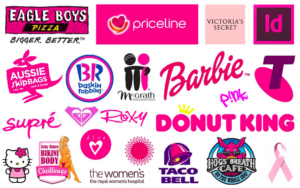Today is International Women’s Day. It’s such an important cause that needs to be highlighted, so we can all play our part in creating a fairer society. Lots of retailers agree – and I can guarantee there will be more retailers than you can wave a loyalty card at climbing all over themselves to show their support this year.

But hang on a minute. Wait. Before you reach for the pink balloons, think about what you’re doing. If you get this wrong in any way, it will bite you in the arse before you can say “virtue signalling”. It’s more than a marketing ploy – and all the helium in the world won’t help you if your CEO has been in the papers for being a sex pest.
Last year saw brands such as Penguin, Mattel, Aer Lingus and Nike prevail when it came to the brand hits. Nike’s ad, which starred tennis champion Serena Williams, was powerful in its representation of female empowerment. Dove are so good at selling to women they hit it out of the park twice – with their Real Beauty and Speak Is Beautiful campaigns – and only scored a miss once, with the embarrassing Body Bottles. Sport England’s ‘This Girl Can’ was a triumph.
Johnnie Walker’s ad ‒ in which the brand’s famous striding man was replaced by a woman, Jane Walker ‒ made an important point in a witty way, but it wasn’t a hit with everyone. But people remember Brewdog’s Pink IPA – “beer for girls” – for all the wrong reasons as Twitter collectively mocked the brand for being “lazy”. Yes, we know you wanted to shine a light on sexist marketing, but was this really how you should have gone about it? Because women = pink! No heart emoji for you, Brewdog (though good on you for knocking 20% off the price and encouraging them to drink more).
In our digital age, eagle-eyed consumers, as well as journalists, will use social media to call you out on hypocrisy or mock you for a half-baked advertising campaign. Last year’s #McFeminism hashtag made a mockery of the upside-down golden arches, with users on Twitter mocking it for not paying its employees a living wage.
This so-called “brandwagoning”, given the gender pay divide in retail, is a dangerous path to tread. The road to hell is paved with good intentions – and littered with discarded slogans from companies whose failed campaigns saw them lose customers, credibility and cash.
I’ve worked in the retail industry for a long time. I genuinely believe that most retailers want to help create a better world while growing their business – and supporting a social cause is not just an admirable thing to do, it’s also a way of engaging with customers on issues that matter to them. I don’t want to get bogged down in stats here, but gender pay differences in the UK retail industry are narrowing, although there’s still plenty of room for improvement.
So if you’re a retailer and want to show support for IWD, waving a pink flag isn’t enough. Some common-sense rules apply. How’s your company’s record on female equality? What’s your gender pay gap? Is it better or worse than the industry average? What are you doing to reduce it? Because if you’re producing T-shirts with slogans in support of IWD you’d better make sure that they haven’t been made in sweatshops and that the women (and men) producing them were paid a living wage.